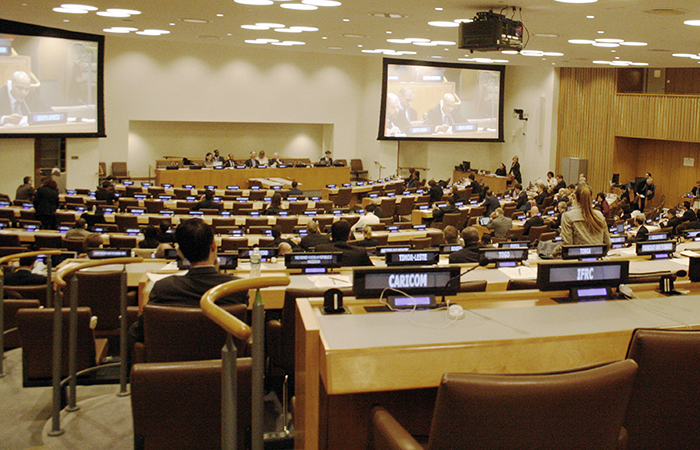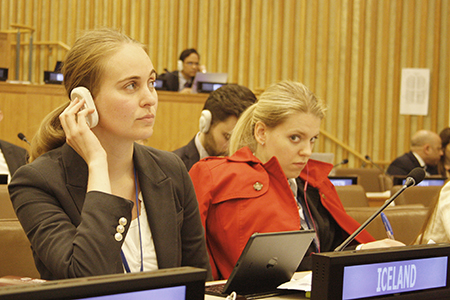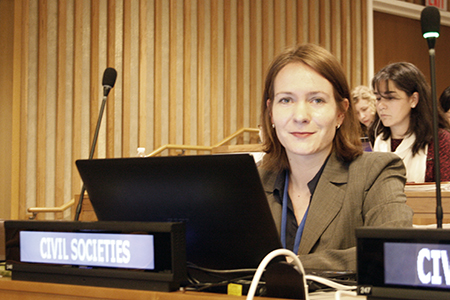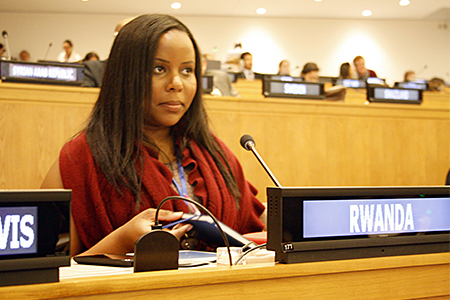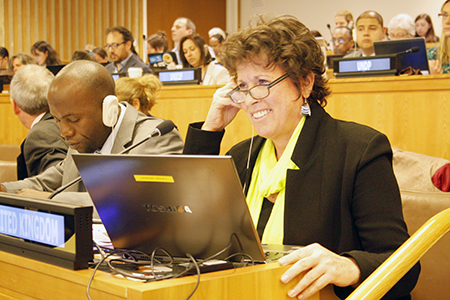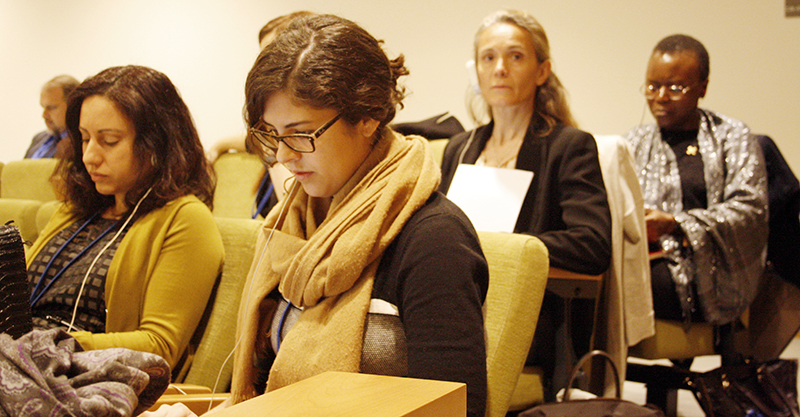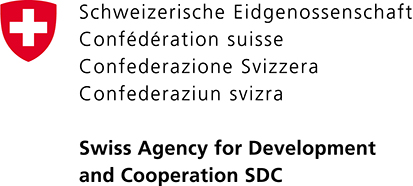|
 On Wednesday, 15 April, delegates considered sections of the zero draft on international public finance; international trade for sustainable development; and debt and debt sustainability. On Wednesday, 15 April, delegates considered sections of the zero draft on international public finance; international trade for sustainable development; and debt and debt sustainability.
On international public finance, developing countries urged retaining the Monterrey Consensus section title of “Increasing international financial and technical cooperation for development” instead of “International public finance”, noting that it indicated the need to scale up finance. They called for scaling up official development assistance (ODA) to 1% of Gross National Income. Others opposed specific targets and timetables, urging a focus on ODA quality. The EU, supported by other Member States, called on all countries to contribute to international public finance commensurate with their respective capabilities, and in a transparent manner. While some countries supported the use of innovative financial mechanisms such as global taxes as international public finance, others were opposed. A discussion also took place on the modernization of the definition of ODA. The G-77/China opposed its inclusion in the text, while the EU called for a transparent and inclusive process under the Organisation for Economic Co-operation and Development to consider the issue, and the development of a new metric of “Total Official Support for Sustainable Development”.
In the afternoon, countries discussed international trade for sustainable development. Many Member States urged leaving trade-related issues to the World Trade Organization (WTO) to avoid pre-judging the outcomes of the Doha Development Agenda, and underscored the need to implement the Bali Package that includes trade facilitation and addresses least developed country (LDC) issues. Several developed countries highlighted the critical role of domestic enabling environments in supporting trade. Developing countries supported a more flexible interpretation of the WTO Agreement on Trade-related Aspects of Intellectual Property Rights, including for access to essential medicine, and for mitigation and adaptation technologies.
On debt and debt sustainability, countries across the board welcomed the call to support the few remaining heavily indebted poor countries, and assisting other vulnerable countries facing potential debt crises. Once again, developing countries wanted to retain “External Debt” as the title for this section, as in the Monterrey Consensus. They supported a bigger role for the UN, through the UN Conference on Trade and Development’s principles on sovereign lending and borrowing, and the UN’s ad hoc committee on sovereign debt restructuring processes. Developed countries supported the role of the International Monetary Fund and the World Bank in debt management, and called for, inter alia, more responsible lending and borrowing practices, and stronger language on budgeting and auditing processes.
|
|


